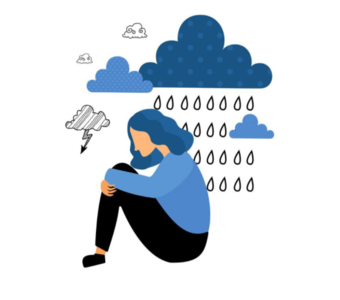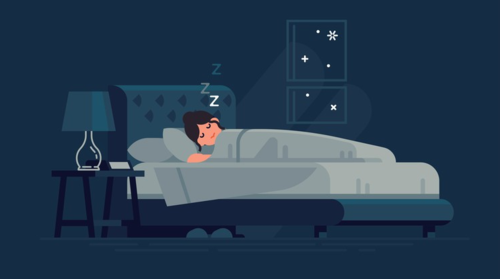The global coronavirus has caused a great deal of stress, worry and tensions arising with the ongoing circumstances. Initially, when the COVID wave hit in March, the country went into a complete lock-down, shutting down shops, restaurants, businesses and schools.
During the lockdown or 'quarantine', staying and working from home as well as attending online classes brought up the topic of mental health. Many students and people complained about feeling depressed, withdrawn and lethargic due to staying at home constantly, stuck in a monotonous routine. Another issue which arose was that of anxiety and tension taken due to the worrisome conditions.
There were abundant posts, circulating awareness and information about COVID 19 on social media, with tips for dealing with or handling the stressful situation as well as assuring one's mental health was efficiently cared for. In addition to this, there are several measures one can practice at home to avert all attention from the situation. News reporters have divulged that those more sensitive to the news about coronavirus should ideally not watch a lot of news or check social media often as it leads to a rise in tension and stress.

As we shifted into the new normal, eventually the 'normal', it seems that the situation may appear significantly improved at surface value although authorities have time and time again stressed the necessity to follow SOPs and practice social distancing, precaution and hygiene. Despite the opening of businesses and an adjustment back to routine, caution is emphasised.
Due to tentative job situations, a change in sleep pattern, worsening health and stress, here are a few things that can be done to minimise the calamity of the situation.
Breathe

Although it may be understandably overwhelming to be plagued with the anxiety, stress and depression caused due to the inability to cope with the situation, it is important to take a breather. Understand that no one can control the situation happening around them, they can simply take charge of themselves and contribute to the cause by staying safe and wearing a mask while practicing preventative measures.
Diet

Our food affects our state of mind as well as physical condition. The more processed food we add to our diet, the more sluggish we feel. Not only is this crucial to take care of during the quarantine, but when we are hesitant to go back to the gym, it's a proven that a balanced diet plays a part in our motivation.
Staying active

Staying active whether in lockdown or not, is bound to boost your endorphins. When we stay active we signal our body to release mood elevating hormones to overwrite feelings of stress and anxiety, such as serotonin and dopamine. The more we move around the less time we have to sit and overthink and naturally balance our hormones to an extent.
Sleep is for the strong

Nothing can replace the quality of a good night's sleep, there's a reason the term was coined. Our brains' need a good 8 hours at night to rejuvenate, rest and heal, which benefits our metabolism, internal chemistry and skin!
Stay connected

Even if we don't feel like engaging in conversation at times or being social, human beings need interaction of some kind or a support system. While it's completely understandable to take breaks and distance ourselves at times, we need to remember the importance of staying connected with those around us, and not plummet into feelings of isolation.
Taking care of our body and mind go hand in hand during this transition into normal everyday life. Taking up activities, integrating into society and maintaining safety is key in moving forward. Living in a pre-coronavirus haze will not alleviate the situation, provoking us to go with the times and not leave our mental health behind!